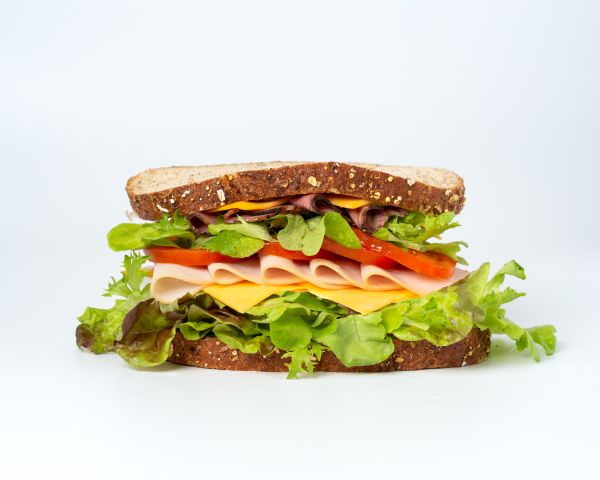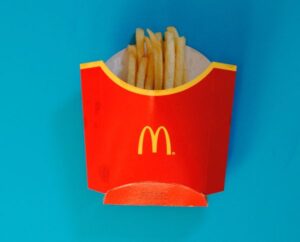
[ad_1]

Right here’s an concept for a science fiction novel: there’s a planet whose residents have spent tens of millions of years studying to discover a scarce and valuable stubstance that retains them alive. Evolution weeded out everybody who wasn’t extraordinarily decided to find and exploit this useful resource. This valuable substance, in its many types, is of course cherished and celebrated by all, and has a central function in each tradition on the planet.
The sci-fi twist comes when folks uncover applied sciences that may produce huge portions of this once-scarce useful resource. Over the course of some generations, folks go from contending with its shortage to contending with its overabundance. Every character within the e book has to search out their very own solution to handle the results of this traumatic reversal, specifically that they’re haunted by ceaseless instinctual cravings that not serve them.
That is in fact a significant plotline in our personal actuality. We’re biologically tuned for a world with scarce consuming alternatives, however occur to search out ourselves in a man-made setting that accommodates a lethal overabundance of such alternatives. Many of the meals encountered on this setting is of low high quality, optimized for scale, and designed to use exactly these pleasure-seeking instincts which might be so exhausting to handle. It might be an exciting story if we weren’t entangled in it ourselves.
(Some folks don’t like once I write about meals and consuming. I assume that is exactly as a result of it’s such a pervasive human concern, similar to cash, politics, and youth/growing old, that it’s exhausting to get away from and subsequently not all the time a welcome matter of dialogue. I perceive this response and would advocate these non-food-related posts as a substitute of this one.)
It’s protected to say that the majority of us have to speculate some quantity of power managing our inherited instincts in direction of meals, notably the one which tells us we must always by no means miss an opportunity to eat one thing good. This acquainted form of self-management is often known as “consuming sensibly.”
The standard eat-sensibly recommendation is probably most tightly encapsulated by Michael Pollan’s “Meals Guidelines” — Eat meals; Not an excessive amount of; Largely crops. These guidelines make for a pleasant basic heuristic, however it’s not a very motivating one.
I’ve all the time discovered that particular recommendation tends to be extra helpful than basic recommendation, as a result of it factors extra on to the moments at which you flip off the crushed monitor of behavior and intuition. Listed below are some extra uncommon and particular angles to take, in navigating the difficult sci-fi premise we discover ourselves in.
1) Apply micro-renunciation.
Many efforts to “eat more healthy” or “minimize down on junk” depend upon exhausting boundaries and long-term vows with low charges of success. You would possibly declare your self, as of this or that Monday, to be an individual who not ever scarfs potato chips, orders takeout on non-special events, or self-consciously provides a chocolate bar to the checkout conveyor.
This want to vary a behavior as soon as and ceaselessly is comprehensible — in the event you don’t scarf the chips this time, you’ll simply do it subsequent time, proper? Everlasting life-style change or bust!
I’m an advocate of cutting down our acts of renunciation. As a substitute of renouncing a given meals or food-related conduct in all of its cases, strive renouncing explicit bowls of chips or siren-singing chocolate bars. Opting out of 1 explicit bowl is mostly doable — fulfilling lifelong vows will not be. And each time you resign a singular snack alternative, you see how it’s all the time inside your energy to take action, and that all temptations instantiate themselves on this time-limited and singular means.
When my host brings out a bag of Cool Ranch, relatively than partaking with abandon if I’m presently “allowed” to, and feeling disregarded if I’m not, I’d keep in mind that voluntarily renouncing this random bowl of chips will not be that troublesome and feels instantly rewarding, plus the temptation solely lasts till others devour it, which by no means takes lengthy.
I’ve written extra about micro-renunciation right here.
2) Mess around with the “consuming pace” variable.
As somebody as soon as accused of consuming a slice of selfmade fudge “prefer it was a sandwich,” I’m aware of a sure instinctive tendency to eat needlessly rapidly. I suppose one thing in me needs to maintain the pleasure ranges excessive. Slowing down looks like it could make the expertise last more, however solely by stretching that pleasure disappointingly skinny.
That’s not the best way it really works, although, if you try it out — if you consciously decelerate, you discover that there’s extra total enjoyment available. It’s not the identical variety of enjoyability items being stretched out over extra time items. A excessive consuming tempo is a waste of delight.
Once you gradual to beneath your ordinary tempo, you’ll really feel a touch of impatience, just like that of driving behind a automotive that’s going a little bit too gradual. Let that feeling be a cue to settle within the new tempo, letting the present chunk have an extended flip than normal on the merry-go-round. In my expertise that is straightforward sufficient, and feels not less than as satisfying as tumbling alongside on the normal tempo, however it doesn’t occur with out aware intention.
3) Transfer away from low-quality cheese.
There are lots of of cheeses, and so they range broadly in properties we are able to name flavor-per-calorie (FPC) and calories-per-dollar (CPD). A light-weight shredding of five-years-aged white cheddar imparts extra taste than a complete slice of low cost delicate cheddar, for instance — it’s increased FPC. Likewise, asiago has rather more punch in it than 4 instances the quantity of brick-packaged mozzarella. Low-quality cheeses are likely to compete on value, which implies excessive CPD however low FPC.
Most cheese-involving meals will be remixed utilizing high-FPC cheeses like emmenthal, asiago, extra pungent cheddars, parmesan, blue if it’s your factor, and so many extra. Going excessive FPC (as a substitute of excessive CPD) additionally means you get to take pleasure in higher-end elements with out growing your cheese price range. This adjustment may save lots of of questionable energy a day for somebody who places cheese on issues loads. Coupling this with a considered down-shifting of consuming pace is a successful combo. The world of cheese opens up if you go high-FPC.
4) Experiment with voluntarily “losing” small quantities of meals.
Many people have grown up with the idea that leaving one thing in your plate, and finally scraping it into the trash, isn’t simply wasteful however flawed. This doctrine is smart if the issue is discovering sufficient meals to outlive, however not if the issue is ordinary overconsumption. In that case, it’s doubly wasteful to make use of your physique to eliminate the surplus, as a result of it solely makes you right into a human rubbish can. Nothing is saved right here — the additional consumption is unlikely to be useful in any means, until you anticipate life descending into hunger situations someday quickly. (In fact, you may often save any extra as leftovers anyway.)
Leaving uneaten a small, sacrificial pile of peas or mashed potatoes helps prepare our potential to voluntarily cease consuming, with out deferring to synthetic “ending factors” equivalent to an empty plate. It returns the locus of management to your intentions and judgment, relatively than leaving it to predetermined situations equivalent to how a lot meals ended up on the plate within the first place.
Minimize down on the bigger drawback of meals waste in additional direct methods — make use of all that previous pantry stuff, and don’t let something go unhealthy within the fridge.
5) Add plain, undressed greens to each meal.
You’ll have learn my for much longer diatribe on this level. Attempt the daring transfer of together with an unadorned vegetable in each meal — plain steamed broccoli, unsalted cucumber slices, or carrot sticks with no dip. Simply eat some rattling crops, with out making an attempt to melt the blow by means of seasonings or dressings. In a tradition wherein meals is all the time all the time anticipated to entertain whereas it nourishes, it’s surprisingly releasing to eat a factor solely for its dietary worth. Uncover and respect, even in the event you can’t exactly take pleasure in, the pure planty bitterness and crunch of plain greens — which, by the best way, have already been selectively bred to be much more palatable than the unique types your ancestors had been so happy to search out.
I’m critical once I say this apply is liberating. By doing this you’re defying an odd and virtually invisible cultural norm: we’ve come to anticipate meals to all the time serve the tastebuds, and typically to additionally serve our well being and longevity. This backwards view of meals is a current human conceit, and admittedly it’s killing us. When you break by the all-must-taste-good barrier, you may add a couple of plain or uncooked veggies to each meal, to remind the physique and mind that there’s no purpose in anyway that each one of our consuming have to be leisure, and actually it’s insane that we ever believed it needs to be.
6) Faux — or understand — that this can be your final meal.
One of many causes I’m keen on the novel All Quiet on the Western Entrance is as a result of the characters — pitifully undersupplied German troopers — spend inordinate quantities of time fantasizing about meals. They daydream aloud about canned inexperienced beans and still-chewy bread ends, and by the top of the struggle half-jokingly declare that they now storm English trenches solely to seize their highly-prized tins of corned beef. Their worship of atypical meals all the time made no matter I used to be consuming — cheese and crackers, lentil soup, scrambled eggs — really feel valuable and in addition ample.
I nonetheless typically fake that the sandwich I’ve made for myself — with pastrami, tomato, mayo, mustard, and pickle on ciabatta bread — is for me a uncommon and transcendent consuming expertise, as it could have been for nearly everybody who has ever lived. It additionally makes less-exciting meals (such because the plain carrots and cucumbers praised above) really feel rather more deserving of gratitude. Flipping into this mindset, when I’m able to, doesn’t solely make the meals style higher, it makes it extra fulfilling, tempering the standard impulse to overconsume.
If the WWI soldier fantasy doesn’t resonate with you, virtually anybody can get the identical impact by a Stoic apply known as the “Final Time” apply. You fake — and in doing so understand it’s true — that this meal may very well be the final one which ever sits earlier than you, which deepens and transforms the expertise of consuming it. Even in a life wherein meals is ubiquitous — for higher or worse — it ought to not less than typically seem to us as a uncommon and valuable factor.
***
Images by Mae Mu, Andre Benz, Arnold Antoo, Nathan Dumlao, blackieshoot, Nik, Markus Winkler, and Judgefloro
[ad_2]






